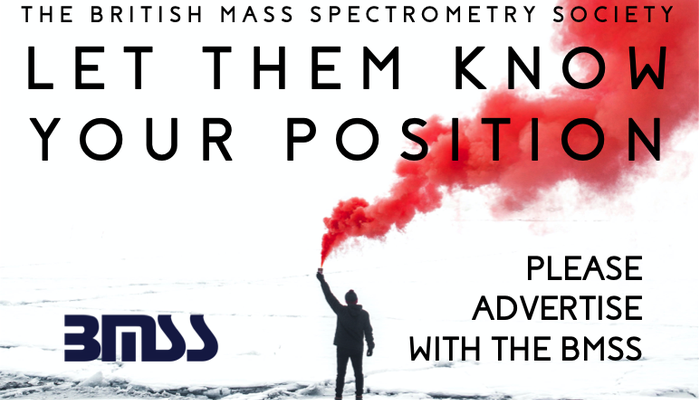BIOSCIENCES: FULLY FUNDED ROTHAMSTED/SWANSEA (BBSRC SWBIO DTP) PhD STUDENTSHIP: MASS SPECTROSCOPY IMAGING OF PLANT-FUNGI INTERACTIONS
- Vacancy Reference Number
- 01
- Closing Date
- 2 Dec 2019
- Salary
- £15,009
- Address
- Rothamsted Research and Swansea University
- Duration
- 4 year
BIOSCIENCES: FULLY FUNDED ROTHAMSTED/SWANSEA (BBSRC SWBIO DTP) PhD STUDENTSHIP: MASS SPECTROSCOPY IMAGING OF PLANT-FUNGI INTERACTIONS
Closing date: 2 December 2019
Key Information: Fully Funded Rothamsted/Swansea (BBSRC SWBio DTP) PhD Studentship: Mass spectroscopy imaging of plant-fungi interactions: understanding symbiosis for sustainable crop production This studentship is funded by the Biotechnology and Biological Sciences Research Council (BBSRC) as part of the South West Biosciences Doctoral Training Partnership (SWBio DTP).
Subject areas: Plant developmental genetics, Biology Supervisors: • Professor William Griffiths (lead supervisor, Swansea University) • Professor Yuqin Wang (Swansea University) • Dr Peter Eastmond (lead supervisor, Rothamsted Research) • Dr Richard Haslam (Rothamsted Research)
A major limitation to plant growth is restricted access to nutrients in the soil. To improve nutrient acquisition, most land plants enter a beneficial symbiosis with arbuscular mycorrhizal (AM) fungi. In return for mineral nutrients, plants deliver fixed carbon to the obligate biotrophic fungus. Nutrient exchange takes place through highly branched hyphal structures called arbuscules that form in the inner cortical cells of the root. Incomplete understanding of the mechanism underlying this symbiosis makes it difficult to exploit for plant crop improvement. Accommodating fungal hyphae requires the extensive transcriptional reprogramming of root cells. Lipids are transferred from the plant to the mycorrhizal fungi, which are fatty acid auxotrophs. Lipids are a major source of organic carbon delivered to the fungus, accumulating as lipid droplets, however the spatial localization of this exchange currently is lacking. Using high spatial-resolution mass spectrometry imaging (MSI), the identity and spatial localisation of lipids in plant root cortical cells and in fungal hyphae will be revealed. A recent discovery made at Rothamsted Research that plants supply lipids to arbuscular mycorrhiza was a paradigm shift. MSI will now provide a complete spatial understanding of lipid exchange by comparing wild type and mutant plants and allow us learn how to facilitate this process for agricultural benefit.
We want to support diverse and inclusive work environments. We therefore welcome applications from individuals regardless of their race, ethnicity, sexual orientation, religion, age, gender, or disability status. We welcome applications from individuals who have previously studied at any recognised Higher Education Institute and from a range of career paths (please refer to the SWBio DTP academic criteria for eligibility), including individuals who have previously trained in the sciences and are wanting to return to scientific research.
Eligibility Academic criteria: Applicants for a studentship must have obtained, or be about to obtain, a First or Upper Second Class UK Honours degree, or the equivalent qualifications gained outside the UK, in an appropriate area of science or technology. Applicants with a Lower Second Class degree will be considered if they also have a Master’s degree or have significant relevant non-academic experience. In addition, due to the strong mathematical component of the taught course in the first year and the quantitative emphasis in our projects, a minimum of a grade B in A-level Maths or an equivalent qualification or experience is required. Equivalent qualifications/experience Physics A-level (grade B and above). Undertaking units as part of your degree that have a significant mathematical component (significant mathematical component examples include; maths, statistics, bioinformatics). Applicants must ensure they highlight their Maths background within their application and to upload any supporting evidence.
Residence criteria: Funding is available to UK and EU nationals who have established UK residency (EU nationals must have ordinarily lived in the UK throughout the three years preceding the start of the studentship). Applicants from EU countries who do not meet the residency requirements may still be eligible for a fees-only award.
Funding: A fully funded four-year SWBio DTP studentship will cover: • a stipend (at the standard UKRI rate; £15,009 per annum for 2019-2020) • research and training costs • UK/EU tuition fees (at the standard UKRI rate) • additional funds to support fieldwork, conferences and a 3-month internship
Further Information
How to Apply
To apply, please download and complete the Application Form and Referee Form from the Rothamsted Research website. https://www.rothamsted.ac.uk/studentships/mass-spectroscopy-imaging-plant-fungi-interactions-understanding-symbiosis-sustainable#HOWTOAPPLY-3
All applications should include a fully completed application form, CV, a transcript of module marks and two references.
The application deadline for this studentship is midnight, 2 December 2019.
Contact Details
• Professor William Griffiths (lead supervisor, Swansea University) w.j.griffiths@swansea.ac.uk
• Professor Yuqin Wang (Swansea University) y.wang@swansea.ac.uk
• Dr Peter Eastmond (lead supervisor, Rothamsted Research) peter.eastmond@rothamsted.ac.uk
• Dr Richard Haslam (Rothamsted Research) richard.haslam@rothamsted.ac.uk

